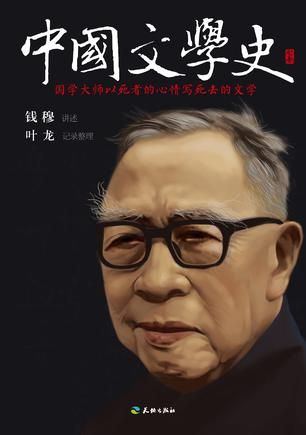Qian Mu’s personalized version of Chinese literary history

Chinese History of Literature
Author: Qian Mu
Publisher: Tiandi Publishing House
Qian Mu (1918-1990), formerly romanized as Ch’ien Mu, was a master of classical Chinese humanities who was knowledgeable not only in history and philosophy, but also in art and society. However, his favorite field was Chinese literature. He taught history of Chinese literature twice at the New Asia College in Hong Kong, spanning the period from autumn of 1955 to the summer of 1956, and in the period from 1958 to 1959.
From the ancient Book of Song, all the way to the fictional works produced during the Ming (1368-1644) and Qing (1616-1911) dynasties, Qian’s lectures comprised a vast array of ancient Chinese literature. But due to turbulence of the times, the lecture notes were never compiled into an organized book until recently.
The current book Chinese History of Literature is an outgrowth of lecture notes recorded and collected by Qian’s disciple Ye Long. Although the book is not meant to be regarded as a traditional work of literary history, or to be read as an academic textbook, the book’s advantage lies precisely in its lively and friendly style as well as Qian’s unique personality, showing a master’s cultural integrity.
Zhang Bowei, a professor from the Department of Chinese Language and Literature at Nanjing University, said that Qian’s personalized and interesting literature narration reflects his nature and the book could serve as a guide for reading and igniting people’s interest in Chinese literature and provide food for thought.
Chen Pingyuan, a professor from the Department of Chinese Language and Literature at Peking University is more outspoken. He said he prefers Qian’s version compared to other traditional works of Chinese literary history, because he believes that every good scholar engaged in literary studies should have their own version of literary history.
In the preface, Ye said he just faithfully wrote down Mr. Qian’s speech without addition or deletion. The book’s value in Chinese literary history is still uncertain, and it could hold significant meaning for people who have experienced cultural discontinuity and are searching for cultural roots once again.
However, Liu Youyang, a literary critic, wrote that the book is a precious specimen for studying the Chinese intellectuals of a great era, because every word is full of the dazzling passion of life, not only from Qian’s attempt to revive the spirit of Confucianism in Hong Kong as a British colony at that time, but also from his burning devotion to the cause of education.
The task of historians, Qian insisted, is to be faithful to the past as it actually happened. History should not be misunderstood and cannot exert a bad influence on future generations. He taught the history of Chinese literature from a variety of perspectives, including history, society, cultural environment, and the comparison of Chinese and Western literature. Qian said in his book An Outline of National History that Chinese people should not deprecate their own worth and they must build national self-confidence and dignity, as well as respect their culture and history.

 PRINT
PRINT CLOSE
CLOSE